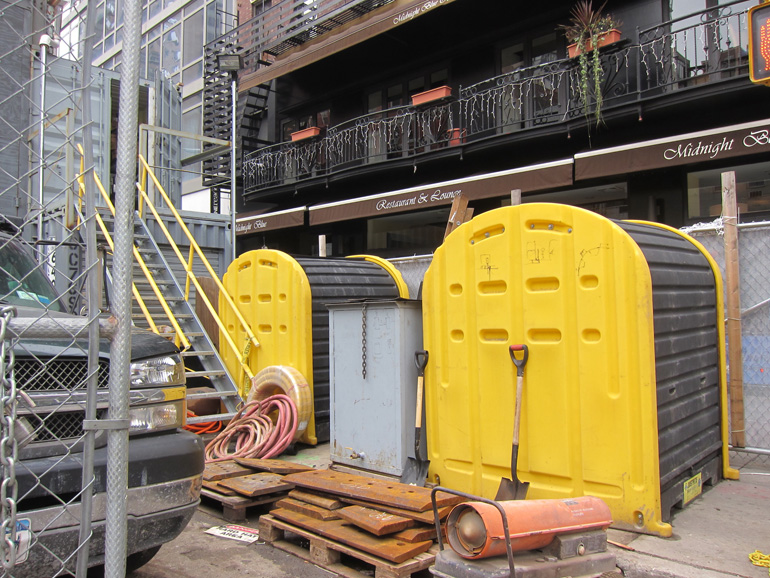Gotham Diary:
Closed
16 January 2013
How many other readers, I wonder, were as shocked by David Remnick’s piece in the current New Yorker, “The Party Faithful,” as I was? Or, more precisely, shocked in a particular way — shocked to discover that their first response to the rejection, by the rising right-wing Jewish Home Party, of any peace plan with West Bank Palestinians, was a kind of relief, an easing of pressure, a surge of hope? A surge of hope for what? For the expulsion (voluntary or otherwise) of the Palestinians? Surely not that! For the end of Israel’s status as a trouble-spot? Is it even conceivable that the Party’s position — which does not appear, by the way, to be obstinate or passionate or hostile, except perhaps to the liberal Western governments’ desire for liberal democracy in the Middle East — has a future?
Before that news could be digested, the next morning’s Times reported a further degradation of liberal possibilities in Pakistan.
The chief catalyst of this jolting change comes in the form of a 61-year-old preacher, Muhammad Tahir-ul Qadri, who catapulted himself into the political limelight less than a month ago, and now finds himself issuing ultimatums to Mr. Zardari from inside a bulletproof container within view of the soaring presidential residence.
Good grief! It’s Khomeini all over again! (The preacher, or Allema, recently flew in from Canada.) Liberal democracy in Pakistan has inclined to be an appearance without substance, more a ritual than a responsibility. Rural Pakistan remains essentially feudal, and the cities are full of the self-exiled children of peasants. The élites are hopelessly mired in their entitlements. (The more you look at it — well, up to a point — the more Pakistan looks like France in 1789. France, however, lacked the financial backing of today’s United States.) A grad student at Indiana in Bloomington, Rafia Zakaria, writes (in The Hindu),
To the most pessimistic, watching a bearded man, who speaks of constitutionalism but not of contesting democratic elections; of getting rid of a government without enumerating the basis of selection of the next, who gives few details of what would happen after the corrupt and inept leaders of now are finally dragged out of office, seems a dangerous mix away from Pakistan’s always delicate democracy. If they are correct, the appearance of Allama Tahir-ul-Qadri may seem the first visible symptom of a long secret ailment ravaging Pakistan; the Pakistani public’s decades long move away from feudal and technocrat dominated politics and decrepit institutions to the faith-based reform movements that have no faith in the party system. Or it could be the usual Pakistani disease; a new front for a military always waiting in the shadows, always impatient with political transitions and able perhaps to create just the right man to fit just the morose mood. To the supporters of Tahir-ul-Qadri huddled in borrowed blankets and threadbare sweaters, in the settling fog of a cold Islamabad night, the details of such dynamics may not matter at all, their chilled and weary focus remaining instead simply on change, in any form and at any cost and under the leadership of any man.
There’s that note again: “change, in any form and at any cost.” That seems to be what the Jewish Home Party is promising, too. And what both situations tell me is that liberal democracy itself just might be the final encumbrance of colonialism, an exotic imposition that finds little fertile soil outside of the lands in which it was developed.
I don’t know much about Islam; I don’t know if the great divide between Sunni and Shia is reflected at lower levels with local, passionate dissensions. From the outside, it seems that Islam is something of a security blanket for its adherents, a simplifying civil comforter. But I tremble for the non-observant Jews who have thrived in Israel for generations. Â

